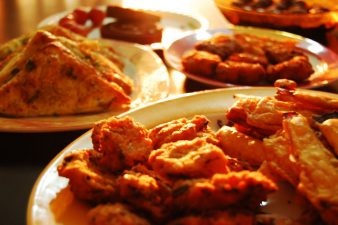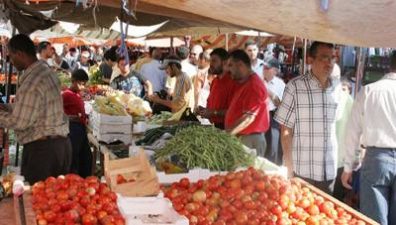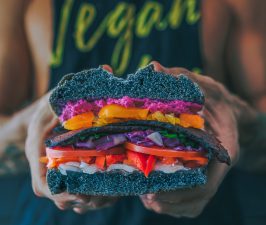 Millions of people around the world will fast during Ramadan, and thousands will hide in the bathroom to sneak food.
Millions of people around the world will fast during Ramadan, and thousands will hide in the bathroom to sneak food.
I tread lightly. I am not a Muslim. I’m not religious at all, though enforced bible education is firmly rooted in my neurological framework. So, it is with grave respect that I tackle the question of fasting. Last year during Ramadan, I spent a week with an Egyptian family in Maadi, a relatively wealthy neighborhood just outside of Cairo.The Aref family were lovely, and I will cherish their kindness and generosity for a long time.
But it was perplexing for me to see my friends abstain all day from food or drink, often in extreme heat amidst power shortages, and then gorge themselves at night. And what are the consequences for people who in consideration of their health decide to relieve their thirst or hunger, particularly in harsh weather? A high school student recently penned an eye-opening op-ed in the Morocco Times addressing just this problem.
Kacem El Ghazzali wrote a editorial in English that puts many American politicians to shame. He describes how during Ramadan, it is necessary for him to hide in the bathroom, a tiny cramped space, in order to steal a few bites from the leftovers of s’hour – a pre-dawn meal that Ramadan observers take – because to eat during daylight hours during the holy month is considered sacrireligious.
This is what will happen if he is caught:
I cannot eat publicly, and you cannot imagine what would possibly happen to me if I ever did. I would be banished by my family as they would consider me a renegade and “kafir”, ousted from all aspects of social life, my friends at school would shun me, even my professors would keep on reprimanding and insulting me, and the authorities would stand against me… they would not acknowledge my citizen’s rights and would take off my ID card and my birth certificate, jail me for “offense against the sacred”… an oriental sheik would issue a fatwa ordering my execution, and in the end I would be stoned to death for apostasy…
He goes on to evoke Article 18 from the Universal Declaration of Human Rights, which guarantees freedom of thought, conscience, and religion. El Ghazzali believes that he should have the right to eat freely during Ramadan in a clean and sanitary environment and without social persecution. This is something that he wants for himself, for his future family, which he hopes to have, and for what he says are possibly thousands of other Moroccans who also spend their Ramadans on the commode.
About a future in Morocco, he makes this salient point:
I would refuse to see my son in his young age eating in a bathroom out of fear of social dictatorship and persecution, or express his opinion just to find himself behind steel bars.
For El Ghazzali, superstition and “wrong interpretations and misunderstandings of the holy texts” rather than genuine, can I say, holiness, motivates the rigid stance taken by Morocco’s state and society during Ramadan. And no one, in his opinion, should be forced to participate unless they want to.
So why am I bringing this up on Green Prophet, which is concerned with mostly environmental issues? In my experience of some people living in North Africa and the Middle East, as well as the United States, South Africa, Viet Nam, and many other parts of the world, people have a similarly rigid and habitualized stance on environmental issues.
The consumer myth
Believing that we need to have plastic bags to carry our groceries, or that we can’t survive without a car, or that it is beneath us to travel on buses and trains are all myths perpetuated by a different kind of religion: consumerism.
For real progress, environmental, political, and religious, we need to perpetuate more mindfulness. We need to equip people with the tools to decide for themselves what kind of world they want to live in: a clean, habitable world, or a dirtier, hotter, miserable world that no God would sanction.
More on Ramadan:
Feasting on Fairtrade this Ramadan
Go Green this Ramadan: 6 Steps
500 Tonne Food Waste Undermines Holy Month of Ramadan
image via ethnomed



